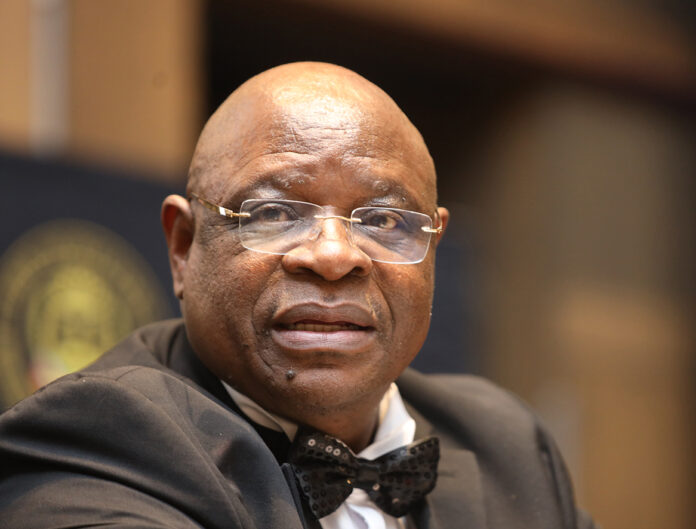Former chief justice Raymond Zondo has lashed out at the Hawks, saying he does not trust the elite police unit to properly investigate and make arrests in corruption cases.
He make specific reference to the Passenger Rail Agency of South Africa (PRASA) Board corruption case, where no arrests have been made.
Zondo believes the now-defunct Scorpions unit was far more effective in investigating matters and conducting arrests.
He was speaking at the South African Council of Churches’ National Church Leaders Anti-Corruption Conference held at FNB Bank City, Johannesburg, on Wednesday.
Zondo said it was worrying that, even after the State Capture commission’s report was handed over in 2022, no arrests had been made. He lamented that no progress had been achieved even by 2025.
Just to recap
Zondo, who presided over the State Capture Commission, highlighted how corruption thrived in government procurement processes.
“In this report, the state capture is recorded as follows, and I quote, “The government is the biggest procurer of goods and services in the world. In 2017, the South African Revenue Service statistics show that the government channelled R927-billion for public procurement, which equates to 19.5% of GDP. The estimated total procurement plan of government procurement of goods and services is over R800-billion a year.”
“In many instances, the evidence before the commission revealed that corruption took many forms. Legislation governing procurement requires transparency in cost-effectiveness and profitability,” he said.
He said that although the law allows for some exceptions to transparency in certain situations, these should not be misused by those involved in procurement.
Zondo also accused government departments of sometimes buying goods and services they do not need, or repeat purchases unnecessarily.
While the law does make room for some flexibility in procurement, this is often abused, leading to fraud.
The former chief justice also pointed out that some contracts are unfairly restricted to certain entities, which is often done for profit.
Open procurement process to scrutiny
Zondo said there is a need to make sure that all eligible suppliers are given a fair chance to take part in government procurement.
He also noted that South Africa had the challenge of appointing people with allegations of wrongdoing in public office.
He highlighted an instance where someone was appointed to the cabinet regardless of the she was still mired in a degree qualification scandal. The president responded that they were awaiting investigations before any sort of sanction could be enforced.
“I’m afraid that is not the answer that should be given by an ethical leader. There are many people who have allegations of fraud or corruption hanging over their heads, who do not qualify to be ministers even in the same party.
“There is no reason why in public office, somebody should be appointed before they clear themselves of such allegations. But there are also people in public service who are allowed to continue with their work as usual, even when there are findings of wrongdoing.
“The state simply allows them to continue. That is not the kind of ethical leadership that we need if we are going to fight corruption,” said Zondo.



